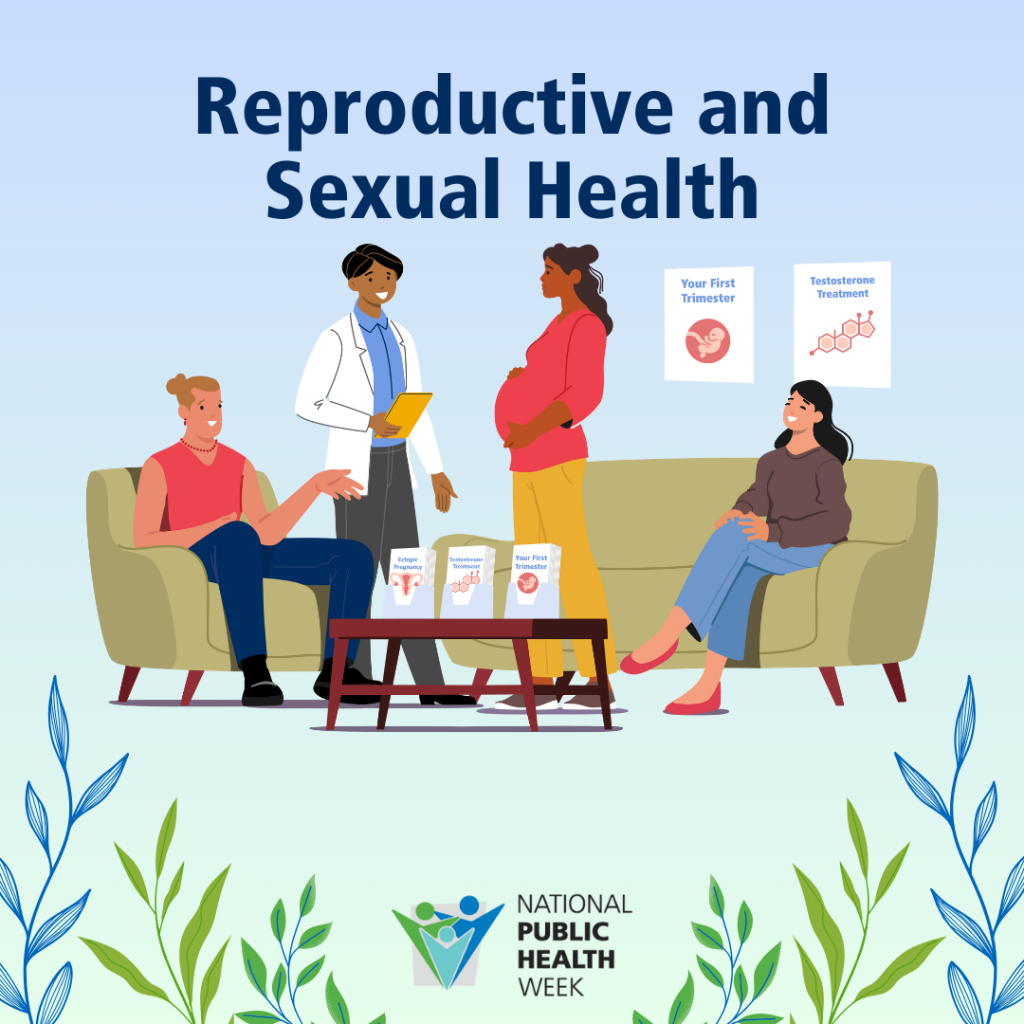
When people have access to quality reproductive and sexual health care and education, they can live happier and healthier lives.
You can make a difference and destigmatize reproductive and sexual health!
Get screened for cancers and tested for STIs. Breast, colorectal and prostate cancers are three of the most common forms of cancer in the United States. Reported cases of sexually transmitted infections like chlamydia, gonorrhea and syphilis have continued to rise in the U.S. Protect yourself by getting tested for STIs yearly. Learn the risks for developing breast and colorectal cancer, such as smoking tobacco, drinking alcohol and being inactive. Take steps to prevent those risks. Get screened based on current guidelines to detect prostate cancer early. People with vaginas should also get regularly screened for human papillomavirus, a very common STI that can lead to certain cancers or genital warts. There is no routine test for HPV for people with penises.
Practice safe sex. Reduce your risk of spreading STIs like HPV and HIV by getting tested yearly; using barriers, such as condoms, for all forms of sexual intercourse; and practicing open communication with your sexual partners. Get consent for sexual activity, and stop immediately if either of you is uncomfortable, feels unsafe or is in pain. Visit your local health center to get condoms, lubricant and other disease-preventing tools.
Communities/Neighborhoods
Donate menstruation products to local shelters. Before the COVID-19 pandemic, an estimated 500 million individuals who menstruate experienced period poverty. Period poverty is a lack of access to menstrual products, education and sanitation facilities. Homeless shelters, health centers and even schools can provide the community with menstrual products. You can help by donating new, unopened packages of pads, tampons and other menstruation products to a local homeless shelter. Take it a step further by calling the shelter and asking if there is a need for items like heating pads, pain relief medication or perhaps some chocolate!
Promote comprehensive sex education in local school districts. Comprehensive sex education is age-appropriate, medically accurate and empowers students to make informed decisions about their overall health. Studies present that comprehensive sex education can lead to a decrease in STI rates, reduce sexual violence and increase youth use of contraceptive methods. States can require their public schools to teach sex education. Only 30 states/territories are mandated to teach sex education in K-12 and only five states require comprehensive sex education in K-12 schools. But school districts can decide on the curriculum. Attend school board and city hall meetings as an advocate and encourage your friends and family to support the adoption of comprehensive, age-appropriate sex education programs.
City/State
Expand access to reproductive health services. City and state governments can take a proactive stance by expanding access to reproductive health services. This includes supporting and funding clinics that provide comprehensive reproductive and sexual health care, including family planning services and STI testing and counseling. By prioritizing accessible and affordable reproductive health services, cities and states can contribute to the overall well-being of their communities.
Nation
Pass legislation protecting reproductive and sexual health care access for all. Members of Congress are responsible for writing and passing federal laws, meaning they can pass legislation protecting access to family planning services and LGBTQ+ services. Contact your representatives to let them know what matters to their constituents – you!
Combat discrimination in reproductive health care. Congress can create laws explicitly preventing discrimination based on factors like race, gender identity, sexual orientation and socioeconomic status. This includes supporting training initiatives for health care providers to deliver culturally competent and inclusive care, creating respectful and understanding health care environments. Congress can also advocate for the use of demographic data to identify and address disparities in reproductive health outcomes. By working with advocacy groups and health care professionals, Congress can ensure its efforts are responsive to evolving needs, fostering a more balanced and inclusive reproductive healthcare system for everyone.
Learn more about National Public Health at https://www.nphw.org/.